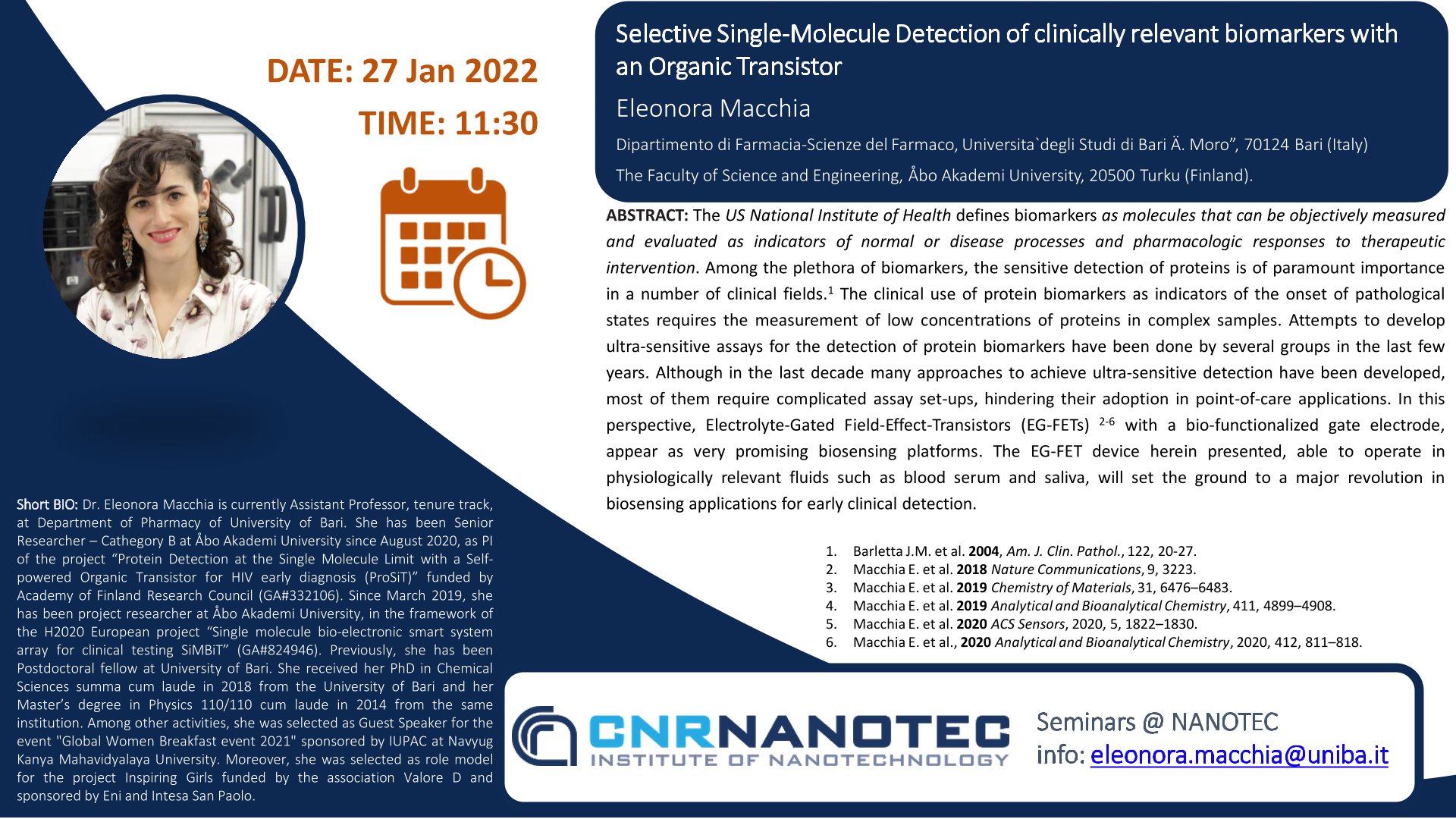Relatore: Eleonora Macchia, Universita`degli Studi di Bari “A. Moro”, 70124 Bari (Italy), Åbo Akademi University, 20500 Turku (Finland)
Luogo: Online Seminar
Abstract
The US National Institute of Health defines biomarkers as molecules that can be objectively measured and evaluated as indicators of normal or disease processes and pharmacologic responses to therapeutic intervention. Among the plethora of biomarkers, the sensitive detection of proteins is of paramount importance in a number of clinical fields.1 The clinical use of protein biomarkers as indicators of the onset of pathological states requires the measurement of low concentrations of proteins in complex samples. Attempts to develop ultra-sensitive assays for the detection of protein biomarkers have been done by several groups in the last few years. Although in the last decade many approaches to achieve ultra-sensitive detection have been developed, most of them require complicated assay set-ups, hindering their adoption in point-of-care applications. In this perspective, Electrolyte-Gated Field-Effect-Transistors (EG-FETs) 2-6 with a bio-functionalized gate electrode, appear as very promising biosensing platforms. The EG-FET device herein presented, able to operate in physiologically relevant fluids such as blood serum and saliva, will set the ground to a major revolution in biosensing applications for early clinical detection.

